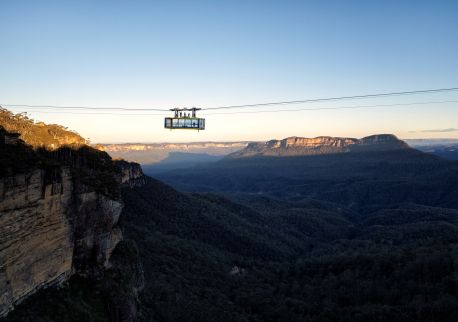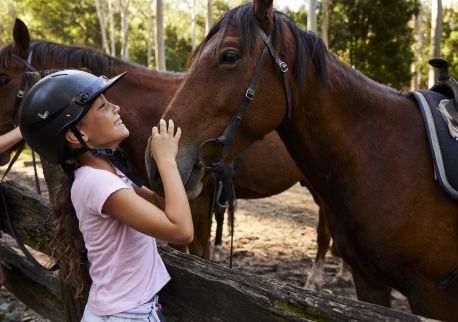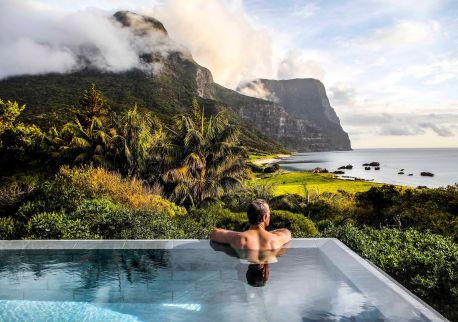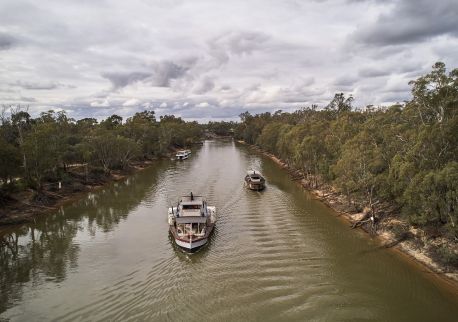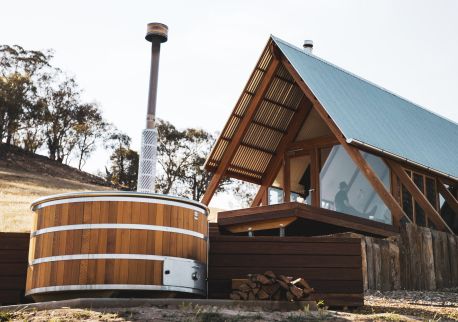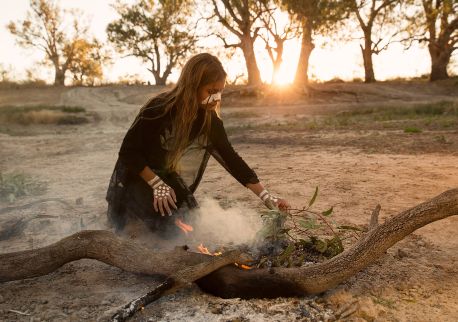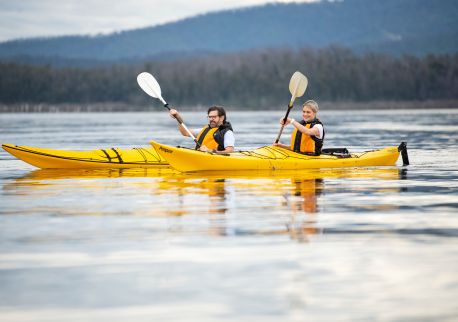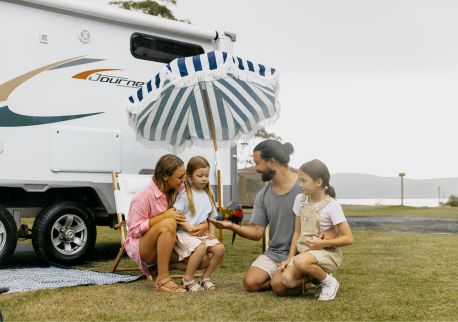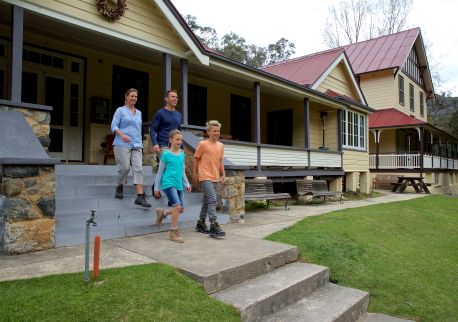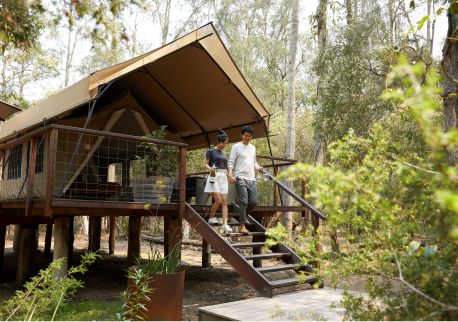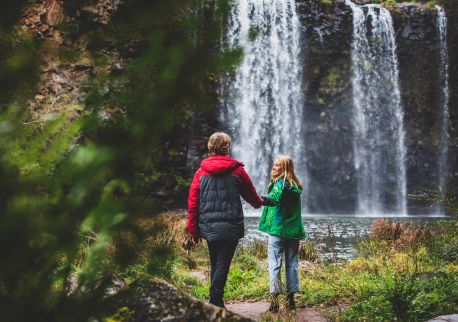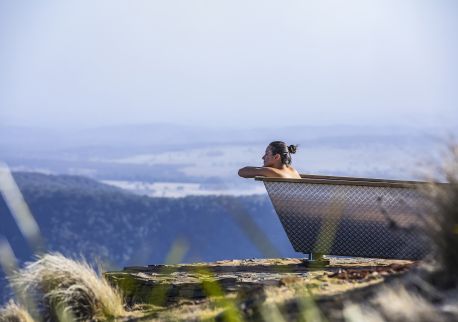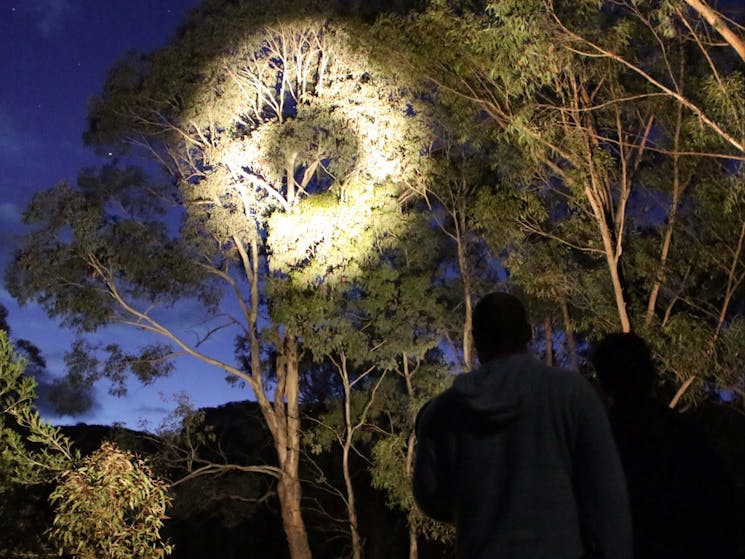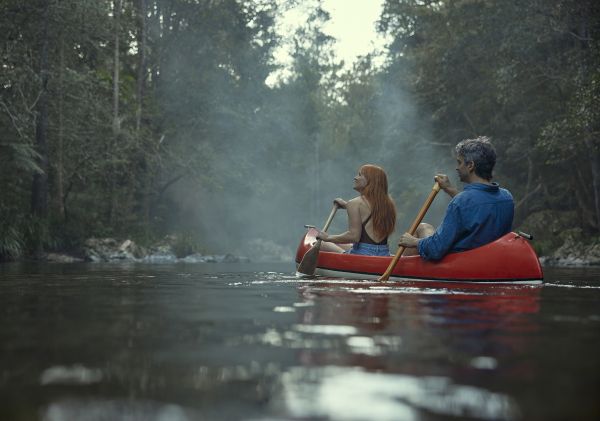Wollemi Twilight Wildlife Walk
Overview
Get wild with the night owls as we explore the world of the Wollemi’s nocturnal wildlife.
Readied with spotlights designed especially for use with native wildlife, guests can spotlight for Red-necked Wallaby and the Southern Boobook Owl or become involved in one of our regular citizen science projects surveying Wollemi’s unique and diverse wildlife such as the iconic Bare-nosed Wombat.
The Wollemi Twilight Wildlife Walk is a fully guided 2-hour walking tour that is perfect for families and wildlife lovers alike. Led by a passionate and knowledgeable local guide, the walk takes you through some of the best areas of the Wollemi for wildlife watching, where we will get to learn about our region’s native wildlife such as the Eastern Grey kangaroo, Wallaroo, Brush-tailed Possum and if you are very lucky, the threatened Powerful Owl or Greater Glider.
By camp light, stop and enjoy a hot chocolate or mulled wine (non-alcoholic of course), and learn about the Wollemi Wilderness – the largest wilderness area in Eastern Australia, and the efforts by scientists, government agencies and the Wolgan Valley community in its protection.
This award-winning tour operates out of two locations including at Newnes and on private property in Wolgan Valley.
Accessibility
A quiet space is available at the venue/ facility
Actively welcomes people with access needs.
Adhere to The Food Authority requirements for allergy management in food preparation
Advise tour guides of the access needs of guests at the time of booking (includes pick up and drop off requirements)
Ask all visitors if there are any specific needs to be met
Caters for people with allergies and intolerances.
Have accessibility information and photos, including of a bathroom, room and/or floor plan on your website (can be emailed on request)
Modify your cooking and cleaning practices to cater for people with food allergies or chemical intolerances (could include menus with meals free from: nuts, dairy, seafood, eggs, gluten etc)
Offer a range of contact methods for receiving complaints
Offer multiple options for booking - web, email, phone
Provide assistance with booking arrangements (includes providing clear itineraries with written instructions on what to do at various destinations)
Provide toiletries which are chemical and fragrance free (if requested)
Train your staff in communicating with people with learning or behavioural challenges
Train your staff in disability awareness
Train your staff to respond to allergic reactions
Use organic (chemical and fragrance free) cleaning products
Use organic (chemical and fragrance free) deodorisers in public areas and rooms
Use Plain English / easy read signage and information (includes menus and emergency information)
Welcomes and assists people who have challenges with learning, communication, understanding and behaviour. (includes people with autism, intellectual disability, Down syndrome, acquired brain injury (ABI), dyslexia and dementia)

